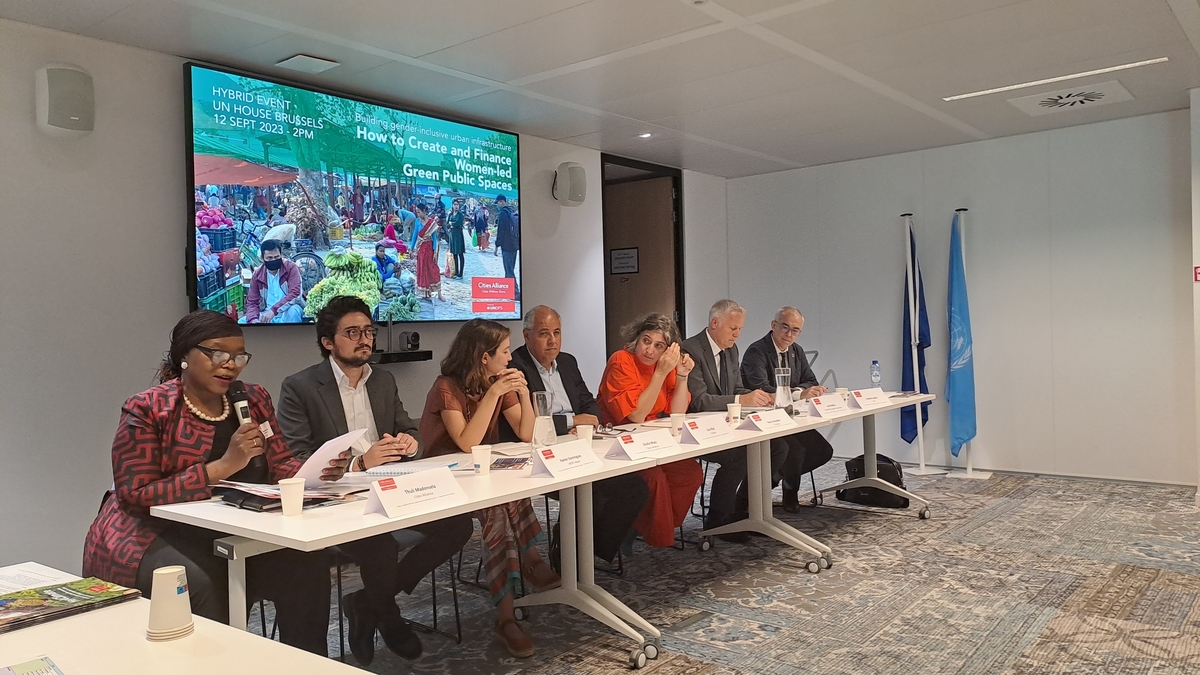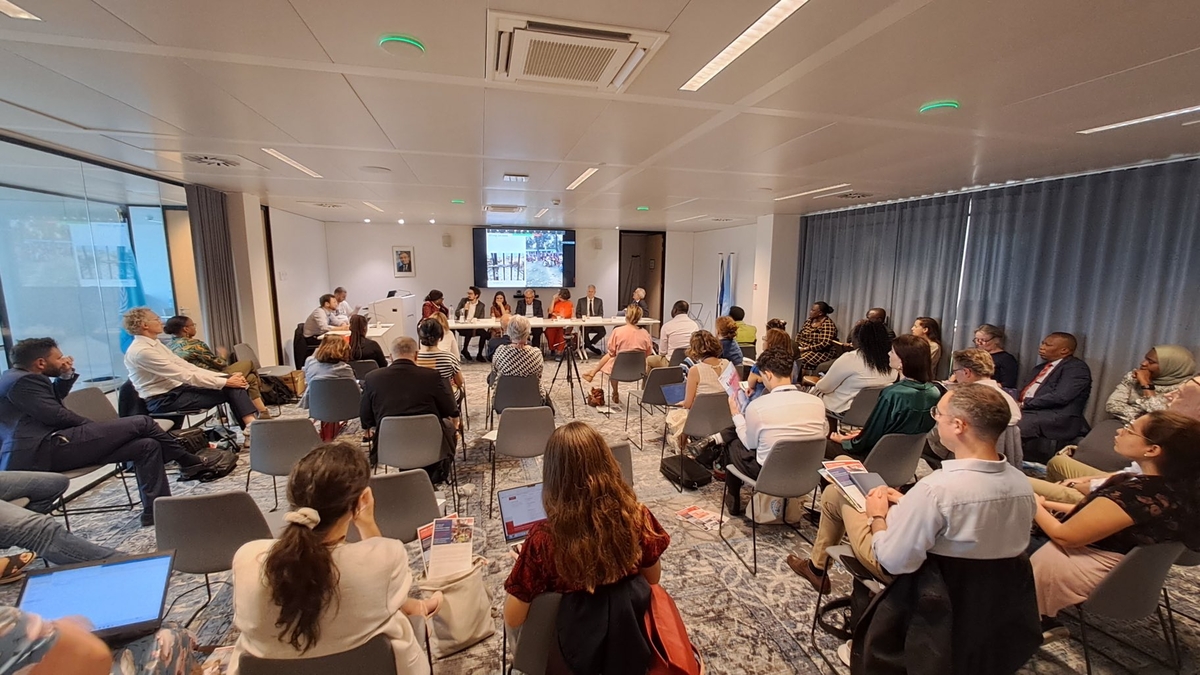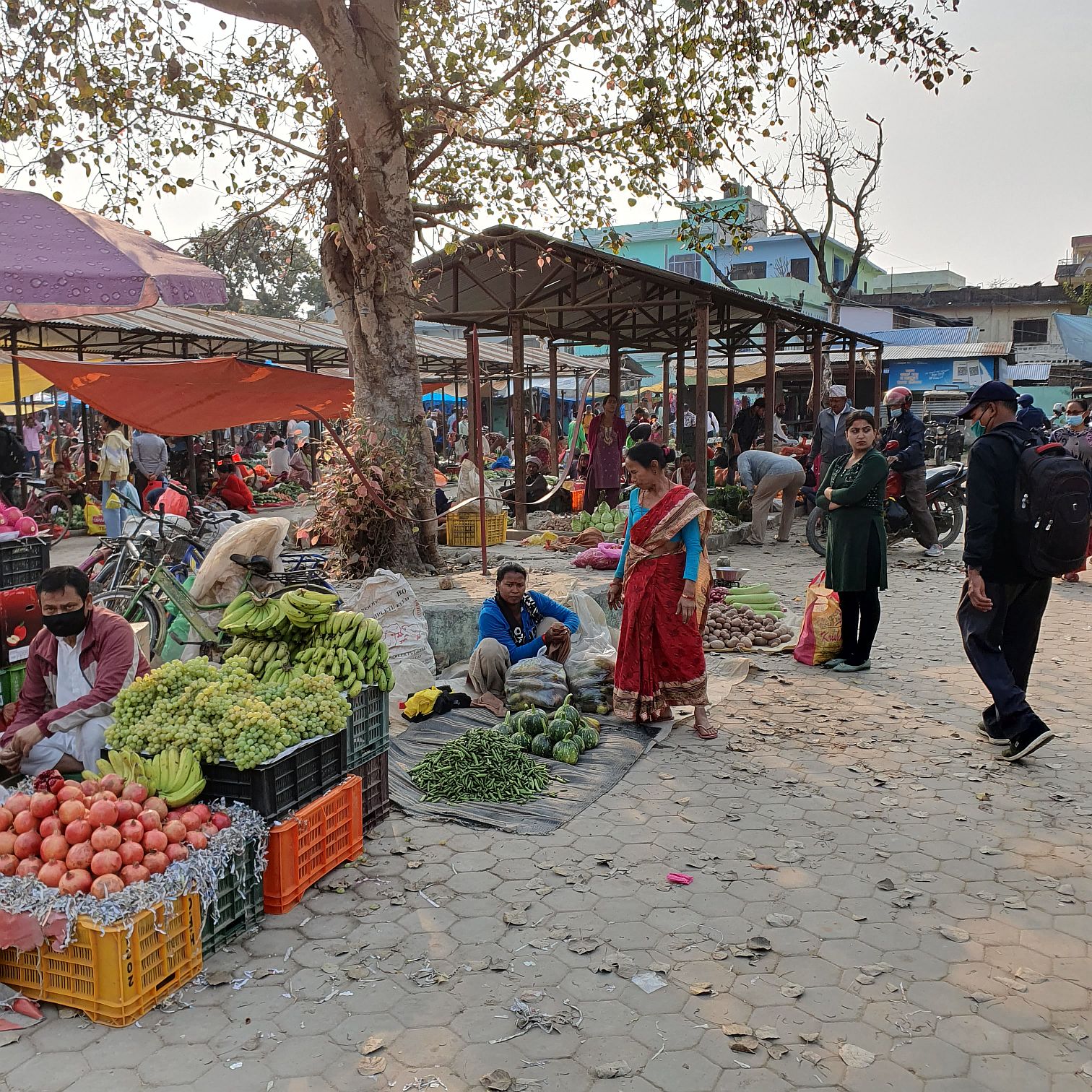This year, cities worldwide sweltered through the hottest summer on record, with deadly heat waves, flooding, and wildfires. With more extreme climate events to come, the burden on cities will only become greater as they seek to build resilience and address central challenges such as poverty, informality, severe resource constraints, and gender inequality.
On 12 September, Cities Alliance hosted a discussion on how the development community and city stakeholders can support cities in becoming resilient, sustainable and inclusive, with a focus on building and funding gender-friendly infrastructures.
“Cities are often overlooked in national studies and international cooperation programmes. They face enormous constraints in terms of financing, policy and capacity when they have to add and implement solutions to crises,” said Thuli Madonsela, Chair of the Cities Alliance Management Board.
Several key themes emerged, including the importance of an integrated approach to urban projects and that cooperation can facilitate innovative mechanisms to help cities mobilise resources. Public space, often overlooked, can be an entry point for solutions, as in the case of Cities Alliance’s Femmedina project in Tunisia and its new Cities 4 Women initiative in Nepal.
Sometimes gender just becomes an afterthought. It’s very important not just to talk about gender mainstreaming, but to underscore gender-led approaches to city development, promoting inclusiveness and resilience.”
San Bilal, Senior Executive, Associate Director Sustainable Economies and Climate Action, European Centre for Development Policy Management
Cities need integrated solutions
Eloisa Astudillo, Deputy Head of Cooperation for the European Union (EU) Delegation in Nepal, highlighted the importance of adopting an integrated approach that combines different expertise and addresses complex urban challenges from various angles.
This allows the city to tackle unequal access to services and economic opportunities, especially for women and girls, and facilitates innovative solutions to adapt to and mitigate climate change.
“When we look at it in an integrated approach, we can solve many more issues and especially not create new problems,” Astudillo said. “Especially the question of how to make sure that spaces and infrastructure we are creating benefit everybody is extremely important.”

Mobilising cooperation for impact
On a broader level, the EU supports effective urbanisation by working with local authorities on policy and governance and creating partnerships to mobilise funding through innovative financing mechanisms, such as the European Fund for Sustainable Development and the Team Europe Initiative.
A good example of EU cooperation is Cityriz, an Agence Française de Développement (AFD) guarantee mechanism to reach cities with few financing alternatives. Cityriz provides guarantees through public or private banks that are counter-guaranteed by the EU and AFD. “We are reducing the risk for the local banks to finance intermediate cities in Africa,” said Frédéric Audras, Head of Urban Development for the Planning and Housing Unit, AFD.
Ian Hoskins, Deputy Head of Unit for South and Southeast Asia at the European Commission’s Directorate-General for International Partnerships (DG INTPA), outlined some of the policy challenges the EU faces when working with local governments, including lack of resources, limited capacity, lack of power at the local level, or legal frameworks that limit decision making.
“Looking forward and addressing the challenges requires policy support and investment, and we need to ensure that it comes with connectivity not only within cities, but also between cities,” said Hoskins.
The EU ensures that gender is incorporated into all its interventions through a Gender Action Plan, which requires a gender sector analysis for each project to address power dynamics and constraints in design and implementation.

Cities 4 Women
Cities Alliance is exploring its own innovative partnership to create gender-inclusive public spaces and fill the gap in climate financing at the local level.
While there is considerable funding for large infrastructure projects, cities struggle to fund small community-based infrastructure projects, said Giulia Maci, Euro-Mediterranean Programme Manager for Cities Alliance. The Femmedina programme in Tunisia has shown that these small projects – a new school, park, or market – can transform the way women use public space and benefit the entire community.
Cities Alliance is partnering with UNOPS to bring the Femmedina approach to Nepal with the new Cities 4 Women programme, which will work directly with women to identify and design climate-resilient projects that meet their needs and engage them in the planning process.
Xavier Palacin Dominguez, Senior Officer at the Project Management Office of UNOPS Nepal, said that Cities 4 Women will build on Nepal’s existing seven-step planning process for municipal infrastructure projects. It will also test a new co-financing mechanism by supporting local infrastructure projects already in the municipal budget and providing co-financing and technical expertise for their design and implementation.
Local governments are best placed to understand their risk in a holistic manner and then also address them through a range of investments.
Sophie de Coninck, Global Manager, UNCDF LoCAL
Ultimately, the goal is to scale up small local infrastructure projects and ensure that other medium-sized projects with a gender perspective are implemented and funded. To that end, Cities Alliance is exploring collaboration with the United Nations Capital Development Fund (UNCDF), whose Local Climate Adaptive Living Facility (LoCAL ) works with local governments to help them access financing for climate-related initiatives.
This type of collaboration is an innovative approach to supporting and scaling up integrated urban development. Cities Alliance has experience in gender-inclusive participatory planning, and UNOPS has the technical expertise to implement pilot infrastructure projects that can leverage additional funding for scaling up via LoCAL, which can ensure that the funding reaches local governments.





